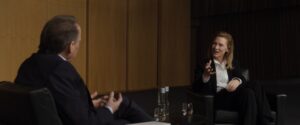During the Will Smith slap fiasco at the 2022 Academy Awards, a handful of people offered a perspective that differed from the standard tones of mortified shock and flabbergasted schadenfreude. A small number, without excusing Smith’s battery of Chris Rock, felt sorrow for Smith; not embarrassment, but genuine pity. Smith,
Can a standard urine test detect drugs?
Urine drug testing is a common method employed to detect the presence of various substances within the body. Employers, healthcare professionals, and law enforcement agencies often utilize this method to screen individuals for drug use. But can a standard urine test effectively detect drugs? Let’s delve into the details.
Introduction
Urine drug testing plays a crucial role in identifying drug use patterns, monitoring treatment progress, and ensuring safety in various environments. Understanding how these tests work and their limitations is essential for accurate interpretation and decision-making.
Understanding Urine Drug Tests
What are urine drug tests?
Urine drug tests, also known as urinalysis, analyze urine samples to detect the presence of drugs or their metabolites. These tests can identify a wide range of substances, including illicit drugs and prescription medications.
How do urine drug tests work?
Urine drug tests typically involve collecting a urine sample and analyzing it for specific drug compounds. The presence of these compounds indicates recent drug use. The test’s sensitivity and specificity determine its ability to accurately detect drugs.
Types of Drugs Detectable in Urine
Common drugs detected
Urine drug tests can detect various substances, including but not limited to:
Marijuana (THC)
Cocaine
Opiates (such as heroin and prescription painkillers)
Amphetamines
Benzodiazepines
Duration of detection
The duration for which drugs remain detectable in urine varies depending on several factors, including the drug type, dosage, frequency of use, and individual metabolism.
Accuracy and Reliability of Urine Drug Tests
Factors influencing accuracy
Several factors can affect the accuracy and reliability of urine drug tests, including:
Sensitivity of the test
Cross-reactivity with other substances
Sample handling and storage procedures
False positives and false negatives
Urine drug tests may yield false-positive or false-negative results due to various factors, such as:
Contamination of the sample
Errors in testing procedures
Interference from medications or dietary supplements
wherever you might stand on his gold-winning King Richard performance, had trekked a long road to reach that momentous night and that glittery stage. It had twisted from his days as a wholesome rapper and a winning television presence through several action touchstones and a few flirtations with tony prestige (Ali, The Pursuit of Happyness). And, for a number of years, he stood atop the highest peak in moviedom: the most famous, highly paid movie star in all of Hollywood. He had been loved as an icon and mocked as a one-time Scientologist and dabbled in a variety of genres without ever truly souring his reputation. It had been a long, long journey and he was minutes away from an already-guaranteed rendezvous with acting’s highest honor. And then something just snapped in him or came over him. If only temporarily, a man known for wielding an iron grip over his own unobjectionable image lost the cool, easy control that was the defining quality of his star persona. There have been scandals less egregious and scandals far, far worse than Smith’s violent tantrum, but it is undeniably tragic for Smith to have walked a movie star tight rope for decades and then topple at his exact moment of triumph. In his stunningly assured TÁR, Todd Field seems to have a bedrock of sympathy for anyone who finds themselves suddenly unable to keep it together. For anyone who strives for perfection but falls into pieces. His third film and second masterpiece (a whopping two decades after his Best Picture-nominated debut In the Bedroom) is an account of a hard-working, marginalized person (a lesbian composer) who is white knuckling it toward their own moment of triumph just as the wheels start to come off of their meticulously constructed victory wagon. It is a story of bad behavior and horrendous judgment conspiring to undo a celebrated artist’s big day. It’s important to note Field’s empathy about how painful professional ruin and the loss of control can be, but Field is also clear-eyed about this kind of thing. The unfortunateness of an artist’s self-sabotage cannot negate the karma of a person becoming the architect of their own misfortune.
Field’s brilliant follow-up to 2006’s shaggy but worthy Little Children is maybe the year’s most cerebral film; a nuanced examination of art, success and the upward striving American Dream. But at its most surface level (a surface deeper than a great many Oscar vehicles ever reach), it is a sumptuously detailed dive into a fascinating subculture: the sophisticated, relentlessly competitive world of symphony orchestras. We meet genius conductor Lydia Tar as she is being interviewed at the prestigious New Yorker Festival and she already holds this entire cloistered classical music world in the palm of her hand. In so many ways, she has already won. She is a Leonard Bernstein protege with a prestigious position at the Berlin Philharmonic Orchestra, numerous acclaimed works, the fabled EGOT (winning an Emmy, Oscar Grammy and Tony, the artist’s Triple Crown), a progressive non-profit for aspiring female conductors like she once was, and a hotly anticipated book on the way. And, in a matter of weeks, she will officially have conducted full cycle of works by Gustav Mahler, an honor no woman in her profession has achieved. We learn all of this in a masterfully acted scene in which Lydia Tar asserts herself as nothing less than a master of time itself. Like the sections in an orchestra, the various pieces of Tar’s life attend the movement of her precise hand and bow to her artistic command. She quickly emerges as one of the most controlling and composed (no pun intended) characters in all of cinema history. Daniel Plainview would probably find her a little intense (though when has he liked anyone?). And then, as so often happens to characters with the hubris to believe they are in full control of their fates, the tight-fisted power Lydia asserts begins to slip, gradually at first and then with increasing speed. TÁR is a piece of work that begins with an assured rhythm and then morphs and devolves into a breathtakingly discordant wall of sound. It is a tale of vanity and ego told with shattering depth and subtly rich humor. And the more Lydia Tar loses her balance, the more Cate Blanchett’s towering, instantly iconic performance takes on the perfect poise and discipline of a great wirewalker. While she lost the Oscar to the great Michelle Yeoh, Lydia Tar’s story of ruin is Cate Blanchett’s latest and greatest moment of triumph. Field’s masterpiece places Blanchett atop the same pedestal that her Lydia Tar falls from.
What we come to learn of Lydia is that she is what we would typically refer to as a “monster”, even though Field’s entire approach is to challenge the idea of categorizing people in that way. He lets us see Tar’s stature as a woman who has risen through the boys club of orchestral music. He introduces us to her as a queer woman, as a person with a devoted partner, as an adoptive mother and as a passionate (albeit brazenly arrogant) instructor of an art form that she clearly loves. In crafting a film about cancel culture, Field does a remarkably deft job of not forgiving professional abuses of power. This is blessedly not a screed about how moral censure threatens great art or how the effort to hold powerful figures accountable has become too prevalent. TÁR is not excusing the Lydia Tars of the world, nor is it apologizing on their behalf. It recognizes with serene detachment that power and success can enable cruelty and exploitation and it lays out the evidence of what is really goin on with Lydia in a way that becomes more alarmingly apparent as the film goes on. Field’s masterstroke is to humanize a mortifying, cancellable person without rationalizing their choices. In a way, Field has accomplished what Martin McDonagh’s Three Billboards Outside Ebbing, Missouri could not, in trying to find something human in a very immoral person. But, where McDonagh patly tried to excuse a violent racist with a single good deed, Field isn’t trying to rescue Lydia. He is asking his audience what a person’s sins look like in the full context of their lives and whatever good they have done. And he is asking complex questions about our empathy for people who do harm to others. Do we save some small amount of it depending on the viciousness of their transgression? What does it mean, in a world full of toxicity and abuse, to see the abuser as human?
In assessing the value of art in relation to problematic artists, TÁR is in dialogue with a moment from another one of 2022’s best films, The Banshees of Inisherin (hello again, Martin McDonagh!) In a pivotal scene, one character scoffs at the value of being a nice, good person weighed against the value of creating a work of enduring artistic genius. TÁR asks its audience how much the character and integrity of the artist should matter when assessing their work. Lydia Tar feels strongly that the identity of the artist shouldn’t matter one iota. She reminds a colleague that the great composer Schoenbrun once threw a woman down a flight of stairs, but that never kept him from being seen as a great man in his field. When a student bristles at covering Bach (one more dead, white male composer) when so many great musicians from black and queer communities continue to go unheard, Lydia rudely bristles right back at him. The great artists, to her thinking, do not need to pour their struggles and personal idiosyncrasies into their work. Instead, an artist’s core self should be utterly immaterial to the work. The work represents something greater and purer than the artist’s mere identity. She insists the artist must actually subsume their identity. The ensuing two hours are a reminder to Lydia Tar that, however noble the idea of art transcending its creator might be, we do not live in a world that holds the two separate. The public does no omit the artist’s identity when they judge the work, especially not for artists that commit heinous deeds. I still consider Woody Allen’s Manhattan to be a humane masterpiece, but it is impossible to rewatch the middle-aged lead (played by Allen himself) romance a 17-year old and not think of the acts of pedophilia the director has been accused of. A lot of great art doesn’t even attempt to hide the nature of the artist. What is auteur theory if not an acknowledgment that the great artists like to pour some of themselves into their work? To paraphrase something the writer JD Amato once said about film, every piece of art is in some way about its creator. In the end, Lydia Tar’s wish to have art cleanly separated from the artist may just be naivete. It could also be an unconscious fear that her abuses of power will catch up to her ; and not only to her but to her innocent creations. That the art will be made to pay for the sins of its parent. And she is not wrong to fear that outcome, even if she wrong in so many other ways. Subsuming your identity may sound high-minded and profound, but it’s also a hypocritical expectation. When an artistic genius feels entitled to indulge their every appetite regardless of who it hurts, that starts to sound like the very antithesis of subsuming yourself. Perhaps it is unrealistic to ask that your art be considered in a vacuum when so much outside of your art is about satisfying your own immoral ego.
To say that a film about a composer has a musical quality is an unspeakable cliche. It is also impossible to touch on TÁR’s bracing, disorienting style without noting that it feels like a piece of music. It is an astonishing work of rhythm and tone, from its confident editing to its subtly bold camera work. But it is not simply put together in a musical way. It has a musical sense of structure and story that it marries to its style. In the film’s opening scene, Lydia Tar waxes poetic on the importance of time in music and she humbly appoints herself the Lord Emperor of Time, at least in any piece she is conducting (Time itself may still be on the table though). Like his character, Todd Field directs with meticulous precision and control. He is not only matching Lydia’s formal perfection as a conductor but the precision with which she conducts her stainless life and the people who occupy it. Her students, her fawning peers, her wife and daughter are all instruments to be commanded. TÁR hums with the pitch perfect timing of a great symphony. And then, in a way that is no less technically assured, it turns into a great atonal symphony, its coolly controlled strains turning discordant, jarring and syncopated. It is, after all, not really about an artist maintaining perfect control but losing it. Field has written a cinematic piece of music to capture the feeling of a life spinning out of balance. A musical odyssey from the highest halls of power through a gauntlet of scandal and down into the back alleys of tarnished anonymity. In some ways, it feels like a film the Safdie Brothers would make if you replaced their gritty, DIY mise en scene with tight, Kubrickian polish. It’s both harrowing and sharply humorous. Just beneath the sober subjects of abuse, bullying and entitlement is a vein of black comedy. It’s the unnerving tickle that only schadenfreude can provide. You chuckle grimly because it’s not happening to you. But the joke is also on us. After we’ve borne witness to Lydia’s calamitous fall from grace, we might realize that her rock bottom is still a life that most of us have to crane our necks to gaze up at. Her hellish torment is to be exiled to a life where she might have to interact with the average person slightly more. Hell for Lydia Tar is having to rub elbows with the people watching Todd Field’s TÁR.
At the same time that Field complicates the nature of a toxic artist, he is also placing some blame back on the people who enable them. One of the most ingenious structural aspects of TÁR is the gradual way Field makes Lydia’s brazen abuse more and more apparent. He doesn’t do it in glaringly obvious ways, Though Lydia’s flirtations with an attractive young cellist who she personally hires over a more deserving musician paints a clear picture of how she uses her high position to extort favor. But, in a way that makes me think of 2023’s The Zone of Interest, Field is really interested in the kinds of crimes that are just concealed enough for people to turn their gaze away from. He brilliantly hints at what kind of person Lydia is in fragmented ways. Nina Hoss’ remarkable performance as Tar’s wife tells us a lot just with a pained gaze. There is a sense that she knows that Lydia is probably sometimes unfaithful, entitled and hedonistic in the way some rich celebrities can be. What’s more enigmatic is how much she suspects about the very young girls that Lydia is being unfaithful with. It’s possible that she has shielded herself from knowing. It is also possible that her patiently pained expression is the look of someone who is on the verge of really seeing what’s going on and can’t bear to take that final step into certainty. The same feels true of Tar’s attentive assistant, her mentor and other member of the symphony. They might all be holding themselves back from looking behind Lydia’s curtain. They know she is an arrogant hedonist, a person unafraid to take what she wants, but that doesn’t necessarily reach the realm of criminality. But to know, to let themselves know with certainty what is going on would be to tear down their own world. Field suggests maybe there is more to a cancellable monster than just the sum of their misdeeds. But he also says there is more behind a cancellable monster than just themselves. There are people with reasons not to want to see them fall. And maybe that’s also why, when people like that do fall, their plummet can oftentimes feel short and inadequate.















